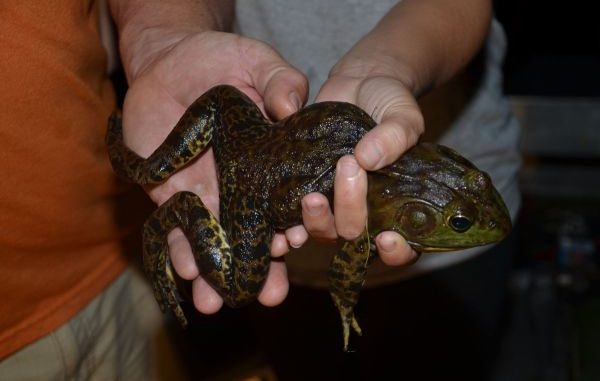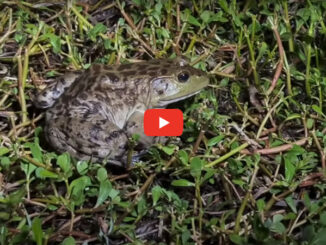
While Corey Crochet loves any kind of hunting, and all saltwater and freshwater fishing, frogging might be his favorite sport.
These are some of Crochet’s tips for successful frogging:
• “It’s important to get where other people can’t. Lots of times that’s where the frogs are,” Crochet said.
• “A lot of people aren’t persistent,” he said. “Earlier in the night we saw lots of boats just running around. When the fish aren’t biting, you see people running instead of fishing; the same goes for frogs. Sometimes I will work for hours and catch all my frogs in one spot.”
• “Find frogs by listening,” Crochet explained. “If you hear one that means that there are often others — sometimes a bunch.”
• “In my experience frogs are very territorial. The only thing that will change locations of concentrations is changing water levels,” he said. “On the other hand, I have found 30 frogs in one little puddle. Why didn’t they move? Who knows?”
• “Frogs’ eyes are famous for shining, but I catch most of my frogs by looking at the belly,” Crochet said. “The eyes can fool you. Small frogs’ eyes shine like big frog’s eyes, but the size of the belly gives them away.”
• “Don’t keep frogs that are small but legal,” he said. “If you keep the little ones they won’t grow into big ones.”
• “Don’t work an area too fast, and be willing to pass through an area you have already worked,” Crochet said. “Sometimes frogs are turned the wrong way and you won’t see them on the first pass. Also, a missed frog will usually come back to the same spot, and you can catch it the second time.”
• “The very best frogging is done before the moon comes up, after it sets or when there is no moon at all,” he said. “A big moon makes them timid, and they jump early. They see the boat before you can blind them with your light.
“I have caught them on full moons, but you really got to go in on them hard.”
• “Generally the warmer it is, the better the frogging is, but I have caught them in December,” Crochet explained. “I have noticed that when the water is cold, frogs tend to be on the bank rather than floating in the water — and the colder it is, the farther up the bank they sit.”
